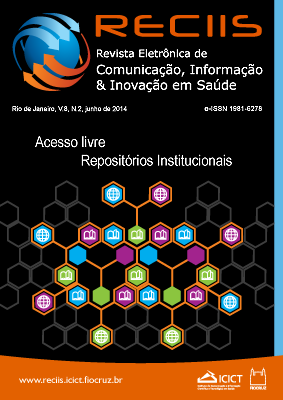Open data research: expanding the concept of free access
DOI:
https://doi.org/10.3395/reciis.v8i2.611Keywords:
Research data, Digital curation, e-Science, Open Science Data AnalysisAbstract
The development of a new generation of experiments, sensors, instruments and simulation software causes the contemporary scientific research produce and use an extraordinary amount of data. This fact characterizes the emerging concept of e-Science, which offers a set of technological tools for collecting and analyzing research data and enables new approaches, applications, innovations and services are offered by modern science. However, for the data to be preserved they must undergo digital curation process, whose main methodology is to give them structural and semantic metadata to ensure transmission of knowledge for the future. On the other hand, under the open science, there is a worldwide trend to give free access to scientific journals and this demand now extends to the free and intelligible access of data generated by scientific research. This paper briefly discusses the importance of open scientific data and their impacts on current information systems for research and ultimately proposes elements for the composition of a digital curation model of research data for the country.Downloads
Published
How to Cite
Issue
Section
License
Author’s rights: The author retains unrestricted rights over his work.
Rights to reuse: Reciis adopts the Creative Commons License, CC BY-NC non-commercial attribution according to the Policy on Open Access to Knowledge by Oswaldo Cruz Foundation. With this license, access, download, copy, print, share, reuse, and distribution of articles is allowed, provided that it is for non-commercial use and with source citation, granting proper authorship credits and reference to Reciis. In such cases, no permission is required from the authors or editors.
Rights of authors’s deposit / self-archiving: The authors are encouraged to deposit the published version, along with the link of their article in Reciis, in institutional repositories.












